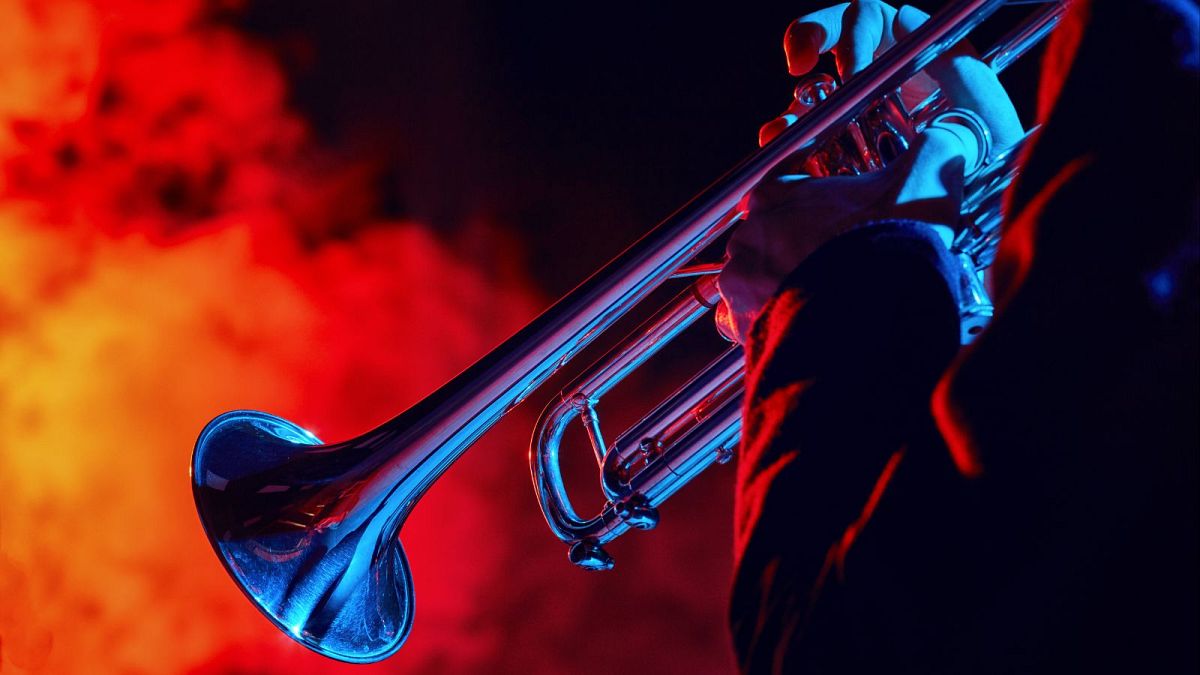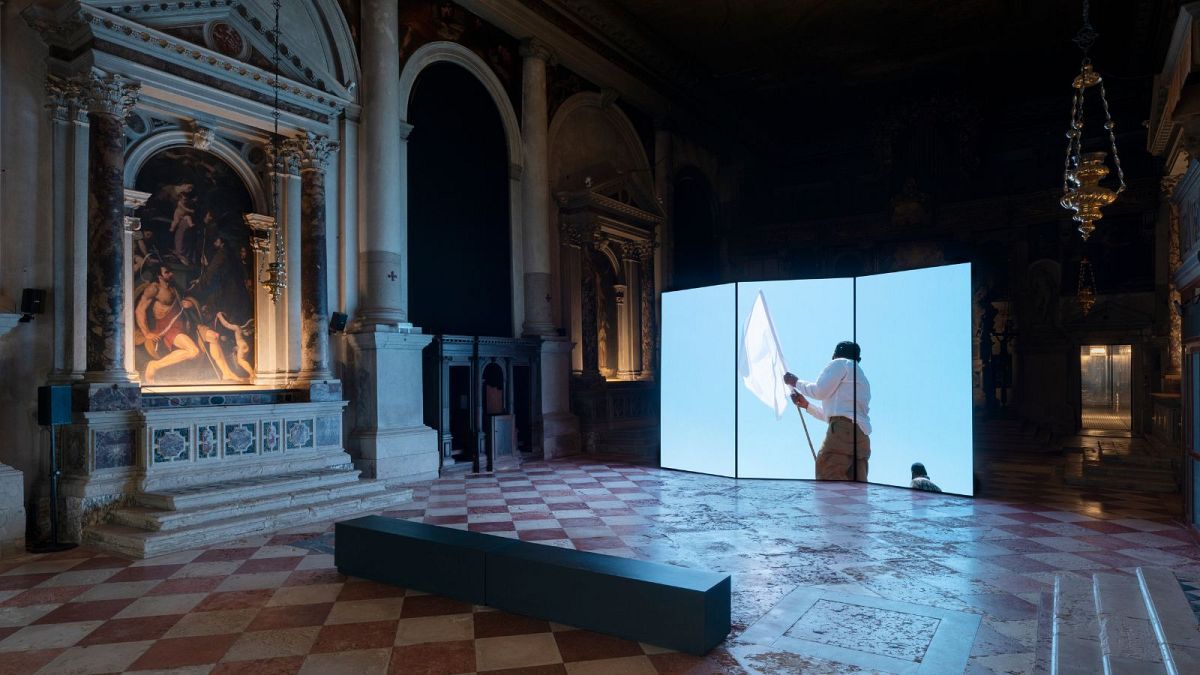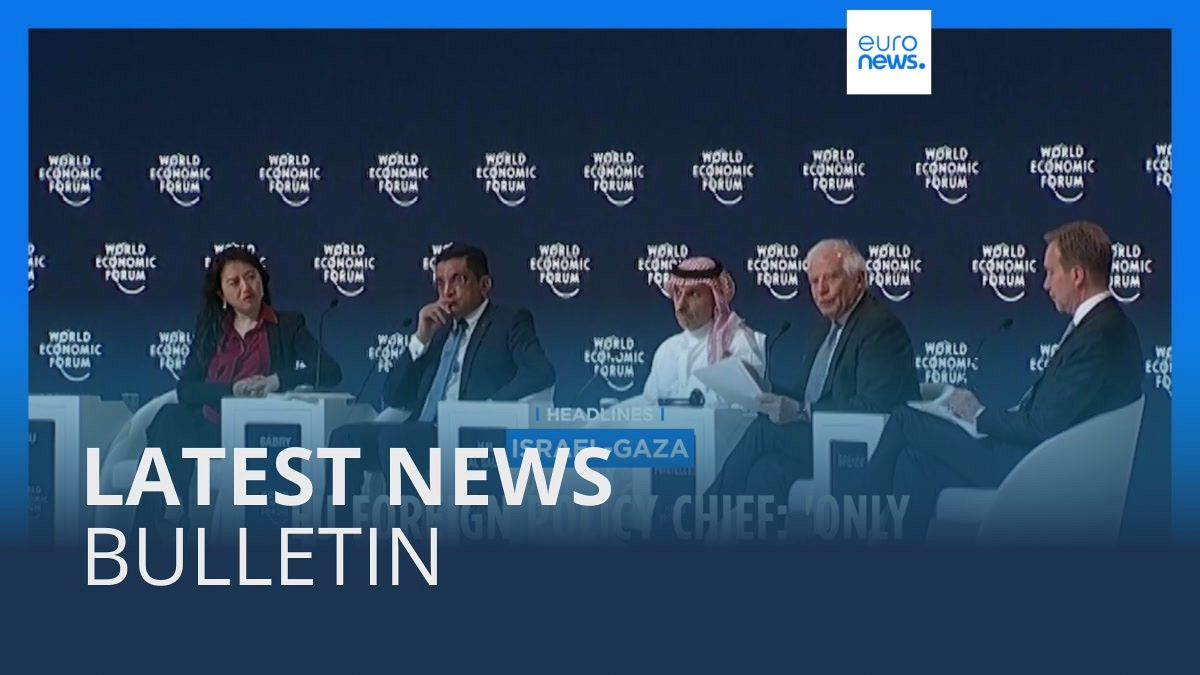
Spanning 250 Songs, Elvis Costello’s 10-Night Residency in NYC Makes Him a Miracle Man: Concert Review
It used to be that it was considered a Herculean feat if artists dug into their back catalogs to recreate two, three or even four classic albums in their entirety for a run of back-to-back concerts. Now, Elvis Costello has pulled off something to make even a stunt like that seem like the stuff of slackers. His 10-night stand at New York’s Gramercy Theatre was billed as “100 Songs and More,” with the artist laying out 10 unique songs he would be playing each night, just as a starting point. By the time the run wrapped up with one final three-hour show Wednesday night, the emphasis was on the …and more, with Costello actually having played exactly 250 songs over the course of the Feb. 9-22 residency (not counting interpolations), with only a handful of those breaking his vow to have no repeats between shows.
Impressing the bookkeepers at Guinness with dealing in volume was not his goal. Most of the nights in this stand had vintage or recent material loosely grouped around a specific theme. The nightly topics of these Gramercy shows ran to such atypical fodder as dystopian politics, or travel and immigration, or the dirty underbelly of entertainment across the years. It’s an indication of just how much conceptual ground Costello has covered in 46 years and more than 30 studio albums that it wasn’t until halfway into the run — on Valentine’s Day, appropriately — that he got around to focusing a night on the subject that consumes most musicians’ entire catalogs: love. (Which, in some of the material from his earliest albums, is not always easily distinguished from hate.) His aim is encyclopedic.
It’s hard to think of many other all-time great rock ‘n’ roll singer-songwriters who could merit, or pull off, such a sprawling, genre-perse, thematically varied, crazily career-encompassing gambit — think Bob Dylan, Bruce Springsteen, Joni Mitchell and him, basically. The other three aren’t likely to attempt it any time soon, so Costello’s epic journey inside a 450-seat theater felt like a historic feat that might never again be repeated by someone of his stature and longevity. Taken in more or less in a fell swoop, the breadth of it all was, for lack of a more original alliteration, beyond belief.
The goalposts for the residency shifted a little, as he occasionally explained them: His endgame was “taking songs apart and putting them back together in front of you,” he said — something he would do mostly on solo guitar or piano at the start, or with keyboardist Steve Nieve joining him midway through the run, but eventually with guest players and even full bands scattered throughout. The “Storytellers” aspect couldn’t be undervalued, either, for someone whose lyrics can remain obtuse to a listener until a simple two-sentence explanation suddenly brings meaning into focus, 10 or 20 or 40 years later. “I get to kind of take a little time to tell a story to you that, in the rush to make new wave music, may have overlooked,” he quipped.

But for his most hardcore fans, some of whom had purchased 10-night passes before they quickly sold out, there was fun to be had in the numbers-crunching of the residency, too, the following mornings, looking up on the most accurate Costello concerts source, the gigography at the Elvis Costello Wiki, just how rarely — if ever — some of these 250 songs had been played. Could it be possible, for instance, that this could be only the eighth time he’d ever played Gram Parsons’ “How Much I Lied” since recording it for the “Almost Blue” album in 1981? It could. Was it really only the 10th time he’d dusted off his own “I’m Not Angry” since it was a late ’70s set staple? Yes, and on opening night he performed it on a clangy electric guitar with an intensity erasing the 46 years that’d passed since he recorded the man-doth-protest-too-much anthem. And then he casually reiterated that “Angry” might be one of the songs he would never get around to playing again after this engagement.
Some of the Gramercy setlists had more grist for casual fans than others. For the first night, the only chronologically themed one, Costello did only songs written prior to 1977, which allowed for a crowd-pleasing preponderance of “My Aim Is True” material. For closing night, he was joined by the Imposters for a three-hour show that almost had more “hits” than the preceding gigs put together. In-between, the shows were more oriented toward the vast majority of attendees counting on deeper and deepest cuts. A couple of drunks who hadn’t gotten the memo did make their presence known, like the “Radio, Radio”-yelling ”fucker who thinks it’s request night,” as Costello noted, shutting him up by adding, “If you don’t have any curiosity now, you never will have.” The following night, when someone in the back similarly yelled for “Pump It Up,” he was slightly gentler in making quick work of someone who didn’t know to “not bother dad at work.” Costello still being Costello, there was also a passing aside about what kind of connection his 1890s acoustic guitar could make with the catcaller’s head.
But for 99% of ticketholders, and even their possibly less suspecting dates, these were dream gigs in which the absence of the aforementioned songs until the final night left room in the intermediate sets for album cuts, B-sides and deluxe bonus tracks that, in Costello’s mind, were essential to each night’s story. A bit of trainspotting: Of the 250 songs played, 239 were unique, with “(What’s So Funny ‘Bout) Peace, Love and Understanding” being a singular constant and climax across all 10 nights — albeit in a different arrangement each time; sometimes a raging rocker, sometimes a heartbreaking gospel ballad. (“Alison” and “A Face in the Crowd” were the only two other numbers to get even a second airing.)
Is there a chance he would do “100 Songs and More” in other locales? Variety put the question to Costello in an interview a week before the engagement began. He wasn’t encouraging, making it seem like this was a one-and-done undertaking, although he’s open to abbreviated versions.

“It’d be fantastic if we could actually imagine doing this in other cities,” he said. But “New York is a place where there’s a reasonable consistency of people that seem to know my name. I don’t know whether I could do 10 nights anywhere else. Certainly not in London.” (Fans will beg to differ, especially in L.A., personal research indicates, although it’s hard to think of a similarly sized club or theater in Southern California with as great a combination of intimacy, sightlines and a liquor license as the Gramercy.) “There’s a few other cities where I might be able to do two or three nights and tell a story that’s a little bit varied like that,” he continued. “I just think when you’ve got a lot of material, it would be lazy not to try and make use of it. Obviously the spinning wheel [the Spinning Songbook tour of 2011] was one way to approach it, because it was totally random, as was Detour [a mid-2010s solo tour], which was related quite strongly to the fact that I was writing the book,” meaning his 2015 memoir.
Costello said that the distinct nights at the Gramercy were already “actually quite formed in my mind. Of course, you can take different turns because I only declared 10 songs a night, but there’s another group that complete the story as I see it each night. And there are no repeats, so once you’ve heard a song, it’s not gonna be done the next night, no matter how famous it is. And I’m not being perverse; I just want to put the emphasis elsewhere. The songbook is the star, not me.” He was dedicated to “moving songs around from one instrument to another, or changing the phrasing” to get a song to a place, sans a band, “where it’s more like a conversation. Because I can sing these songs all in the original keys,” he noted proudly. “For the most part, the higher register is really where I live. … So that’s all I’m gonna say: come expecting the unexpected and you won’t be disappointed. If you come to hear the three songs that most people would name, other shows are about that — not this one.”
Another thing the Gramercy residency turned out not to be about: celebrity guests — although the number of non-celebrity guests finally rose into the dozens. Nieve, as advertised, was on hand to play mostly piano and a bit of electronic keys for the second half of the run, echoing the much-loved “Lonely World” tours they did as a duo in the late ’90s. But most of the shows had some kind of guest-list twist about the two-thirds point. On Night 2, that entailed having a pickup band of five players conversant in Americana and Irish music joining him for songs about the European experience like “American Without Tears.” (Kentucky-bred MVP Brigid Kaelin not only played accordion but provided possibly the first appearance of a saw solo in an Elvis Costello show.)

For the third night, a single guest instrumentalist — double-bassist Endea Owens, on a weekend night off from her gig with Stephen Colbert — made for a grinning, gale-force addition. She was the thrilling driving force behind Costello’s version of Charles Mingus’ “Weird Nightmare,” as well as a “My Mood Swings” that really swung; the acoustic nature of her bass came in handy when the power on stage went out for most of another number. What a joy an entire Costello-Owens tour could be, if Colbert could give her the time off — or better yet, Elvis, Owens and Nieve as a traveling jazz trio, while we’re dreaming.

Night 4 brought the biggest surprise: eight songs from “A Face in the Crowd,” the prospective Broadway musical that Costello has been working on with book writer Sarah Ruhl for years, which even now he swore will yet come to staged fruition. Crowding the stage were eight ensemble singers, plus pianist-arranger Rob Mathes and, for one number only, Larkin Poe’s Rebecca Lovell, who provided smoky belt-iness in what could be the musical’s showstopper for its female lead, “Burn the Paper Down to Ash.” Chorus member Antwayn Hopper stepped up to center stage midway through the title song of “Face in the Crowd” to share it as a duet with Costello, bringing down the house with a highly ironic but powerfully gospel-flavored number that pitches the fulfillment of impossible dreams to hope-starved suckers. Few things could beat going to an Elvis Costello solo show and getting a galvanizing pop-up Broadway workshop for a surprise extended encore — the ultimate New York City equivalent to a bonus track that risks overshadowing the core material.

One name loomed large over the 10 nights, in absentia: Burt Bacharach, whose death on the eve of opening night cast a mostly unspoken pall but added still more purpose to the engagement. Costello had planned to, and did, save most of the material he co-wrote with the giant for their ‘90s album “Painted From Memory” for the second half of the run, when Nieve would be on stage to play piano as elegantly as Bacharach did. But even before Nieve flew over from Paris to up the Burt-ness quotient, Costello, accompanying himself, found opportunities to cover his friend’s work from the ‘60s, from “Anyone Who Had a Heart,” “Baby It’s You” and “Please Stay” on that first night to, a few nights later, the more obscure “Mexican Divorce.” After Nieve came aboard, they gently tackled “I Just Don’t Know What to Do With Myself” (a Bacharach/David classic first recorded live with the Attractions in 1977). The very last night of the stand ended with a version of Costello’s stark “I Want You” that incorporated “I Say a Little Prayer” — an interpolation he’s done in concert before, although the vintage “prayer” obviously never felt as much like a mini-benediction as it did here.
Said Costello, “Watching Burt perform was a little bit like being in a cafe … overhearing people speaking in a seductive language you didn’t understand … and it sounds so wonderful that you wish you could speak Portuguese.” Is it any surprise that, along the way, Costello really did pick up the language?
However celebrative these shows, death would have cast a presence even if Bacharach’s passing had not made for a few more somber asides even than planned. One rarely performed surprise pick in the middle of the run was “The Puppet Has Cut His Strings,” a brilliant number about his beloved father’s death that got overlooked when it was buried deep into Costello’s otherwise experimental record with the Roots in the mid-2010s. “Anybody who’s ever had the privilege of watching somebody leave us, this is what it looks like,” he said by way of introduction to as sobering a song as any songs come. The coil of mortality showed up elsewhere, as well: In the middle of an otherwise quite rowdy final setlist, the singer had the rest of the Imposters exit the stage so that he and Nieve could be along together for “Couldn’t Call It Unexpected No. 4,” a 30-year-old number that is also about the cutting of strings between this life and the next.
Chuck Berry-style, Dylan-derived pumping up was to resume, and then Costello left the stage on the final night with the explanation that he had run out of songs and would have to go write some more. (Hardly… the residency could have been taken to a lucky 13 nights and still not hit all the songs the most faithful attendees hoped might be pulled out of mothballs.) It’s his dedication to exploring a life’s darker moments, anyway, as well as its more cautiously exhilarating ones that makes Costello’s catalog so rife for a marathon rifling-through.
“It’s not a matter of life and death,” he sang in “Hoover Factory,” an early track brought up for duty, “but what is… what is?” The answer to that is: a decent amount of his repertoire, actually, even if getting the big picture out of these impassioned 250 songs involved a commitment, on his part and the audience’s, to a whole lot of tiny steps.

The setlists for the 10-night stand:
NIGHT 1
1. Welcome to the Working Week
2. Miracle Man
3. Hoover Factory
4. (The Angels Wanna Wear My) Red Shoes
5. Stranger in the House
6. I Can’t Turn It Off
7. Sneaky Feelings
8. Imagination (Is A Powerful Deceiver)
9. Domino (Van Morrison cover)
10. Living in Paradise
11. Baby It’s You
12. Poison Moon
13. Dupree’s Diamond Blues (Grateful Dead cover)
14. Wave a White Flag
15. I’m Not Angry
16. Anyone Who Had a Heart
17. Radio Sweetheart/Jackie Wilson Said (Van Morrison cover)
18. Mystery Dance
19. Mr. Moon (Clover cover)
20. No Dancing
21. Cheap Reward
22. Alison
23. Please Stay (Burt Bacharach cover)
24. (What’s So Funny ‘Bout) Peace, Love and Understanding?
NIGHT 2
1. Jack of All Parades
2. Watch Your Step
3. Home Is Anywhere You Hang Your Head
4. My Little Blue Window
5. Heathen Town
6. New Amsterdam
7. Deportee
8. Last Boat Leaving
9. Battered Old Bird
10. The Other Side of Summer
11. Red Cotton
12. I Can’t Stand Up for Falling Down (Sam & Dave cover)
13. American Without Tears
14. Any King’s Shilling
15. Little Palaces
16. Long Journey Home
17. The Crooked Line
18. Dirty Rotten Shame
19. Sulphur to Sugarcane
20. Sleep of the Just
21. The Scarlet Tide
22. (What’s So Funny ‘Bout) Peace, Love And Understanding?
(Costello solo, songs 1-12; with Kara Doyle, Tony Garnier, Brigid Kaelin, Colin Nairne and Eleanor Whitmore, songs 13-22)
NIGHT 3
1. Complicated Shadows
2. Kinder Murder
3. Alibi
4. Less Than Zero
5. Hidden Shame
6. The Delivery Man
7. Bullets for the New-Born King
8. All These Strangers
9. Oliver’s Army (with new lyrics)
10. Bedlam
11. She’s Pulling Out the Pin
12. Ascension Day
13. Brilliant Mistake
14. Let Him Dangle
15. Stations Of The Cross
16. That Day Is Done
17. Night Rally
18. The River in Reverse
19. Weird Nightmare (Charles Mingus cover)
20. One Bell Ringing
21. My Mood Swings
22. We Are All Cowards Now
23. (What’s So Funny ‘Bout) Peace, Love And Understanding?
(Costello solo, songs 1-17; with bassist Endea Owens, songs 18-23)
NIGHT 4
1. 45
2. Stella Hurt
3. Mexican Divorce (Burt Bacharach cover)
4. Dr. Watson, I Presume
5. I Want to Vanish
6. Walkin’ My Baby Back Home (1930s standard cover)
7. Down Among the Wines and Spirits
8. Black and White World
9. Mr. Feathers
10. A Voice in the Dark
11. Ghost Train
12. Radio Soul
13. A Slow Drag With Josephine
14. Under Lime
15. Church Underground
16. God’s Comic
17. Suit of Lights
18. Jimmie Standing in the Rain
19. This Uneasy Hour
20. American Mirror
21. He Makes My Water Boil
22. Big Stars Have Tumbled
23. Burn the Paper Down to Ash
24. Vitajex
25. Blood & Hot Sauce
26. A Face in the Crowd
27. (What’s So Funny ‘Bout) Peace, Love And Understanding?
(Costello solo, songs 1-18; with “A Face in the Crowd” vocal ensemble and pianist Rob Mathes, songs 19-27; song 23 sung solo by Rebecca Lovell; song 26 performed as duet with Antwayn Hopper)

NIGHT 5
1. This Year’s Girl
2. Starting to Come to Me
3. I Hope You’re Happy Now
4. Our Little Angel
5. King of Confidence
6. Blue Chair
7. Harry Worth
8. Home Truth
9. I Dreamed of My Old Lover
10. Dishonor the Stars
11. After the Fall
12. Toledo
13. Beyond Belief
14. My Three Sons
15. The Puppet Has Cut His Strings
16. Stripping Paper
17. The Greatest Love
18. I’ll Wear It Proudly
19. Crimes of Paris
20. Adieu Paris (L’Envie Des Etoiles)
21. Isabelle in Tears
22. High Fidelity
23. Riot Act
24. Good Year for the Roses (George Jones cover)
25. Indoor Fireworks
26. My Funny Valentine (Rodgers & Hart cover)
27. (What’s So Funny ‘Bout) Peace, Love and Understanding?
(Costello solo, songs 1-17; with keyboardist Steve Nieve, songs 18-27)
NIGHT 6
1. Accidents Will Happen
2. The Loved Ones
3. Suspect My Tears
4. I Just Don’t Know What To Do With Myself (Bacharach/David cover)
5. Photographs Can Lie
6. Just A Memory
7. Motel Matches
8. All Grown Up
9. Byline
10. Burnt Sugar Is So Bitter
11. The Final Mrs. Curtain
12. Unwanted Number
13. The Long Honeymoon
14. You Shouldn’t Look at Me That Way
15. What’s Her Name Today?
16. God Give Me Strength
17. Veronica
18. Mr. Crescent
19. How Much I Lied (Gram Parsons cover)
20. I’m Your Toy (Gram Parsons cover)
21. Tiny Steps
22. Waiting for the End of the World
23. (What’s So Funny ‘Bout) Peace, Love and Understanding?
(Costello with keyboardist Steve Nieve, all songs)
NIGHT 7
1. Shot With His Own Gun
2. Still
3. Harpies Bizarre
4. Shabby Doll
5. The Whirlwind
6. When It Sings
7. No Wonder
8. My Dark Life
9. You Little Fool
10. My Most Beautiful Mistake
11. Party Girl
12. Still Too Soon To Know
13. Temptation
14. Town Cryer
15. The Comedians
16. Don’t Look Now
17. This House Is Empty Now
18. Pretty Words
19. When I Was Cruel No. 2
20. Poor Napoleon
21. In Another Room
22. (What’s So Funny ‘Bout) Peace, Love And Understanding?
(Costello with keyboardist Steve Nieve, all songs)
NIGHT 8
1. Talking in the Dark
2. Black Sails in the Sunset
3. Love Field
4. So Like Candy
5. The Beat
6. London’s Brilliant Parade
7. The Other End of the Telescope
8. Paint the Red Rose Blue
9. Human Hands
10. Hurry Down Doomsday (The Bugs Are Taking Over)
11. April 5th
12. Kid About It
13. I Still Have That Other Girl
14. He’s Given Me Things
15. Look Up Again
16. Favourite Hour
17. The Birds Will Still Be Singing
18. Pills and Soap
19. I Do (Zula’s Song)
20. Come the Meantimes
21. Radio Is Everything
22. Someone Took the Words Away
23. Shut Him Down
24. I’m in the Mood Again
25. Almost Blue
26. (What’s So Funny ‘Bout) Peace, Love and Understanding?
(Costello with keyboardist Steve Nieve, all songs; also with horns and JSWISS, songs 18-23 and 25-26)
NIGHT 9
1. Blame It On Cain
2. All This Useless Beauty
3. You’ll Never Be a Man
4. Rocking Horse Road
5. Trick Out The Truth
6. What Is It That I Need That I Don’t Already Have?
7. Distorted Angel
8. Hey Clockface/How Can You Face Me?
9. The Last Confession Of Vivian Whip
10. Fallen
11. You Lie Sweetly
12. In The Darkest Place
13. You Can Have Her
14. My Thief
15. Surrender to the Rhythm
16. You Belong To Me
17. Country Darkness
18. Monkey to Man
19. That’s Not The Part of Him You’re Leaving
20. Poisoned Rose
21. A Face in the Crowd
22. All the Rage
23. Shipbuilding
24. Cinco Minutos Con Vos
25. Detonantes (Little Triggers)
26. Don’t Let Me Be Misunderstood
27. (What’s So Funny ‘Bout) Peace, Love And Understanding?
(Costello with Steve Nieve, songs 1-14; with the Imposters, songs 15-27; also with Michael Leonhart, song 23; with La Marisoul and horns, songs 24-27)
NIGHT 10
1. Radio, Radio
2. Green Shirt
3. American Gangster Time
4. Hetty O’Hara Confidential
5. Either Side of the Same Town
6. The Death of Magic Thinking
7. New Lace Sleeves
8. The Boy Named If
9. Everyday I Write the Book
10. Tipsy Woman
11. Penelope Halfpenny
12. Uncomplicated
13. Newspaper Pane
14. Lipstick Vogue
15. Watching the Detectives
16. Couldn’t Call It Unexpected No. 4
17. Deep Dark Truthful Mirror
18. The Man You Love to Hate
19. Clubland
20. Mistook Me for a Friend
21. (I Don’t Want to Go to) Chelsea
22. What If I Can’t Give You Anything But Love?
23. Man Out of Time
24. Farewell, OK
25. Alison
26. Magnificent Hurt
27. Pump It Up
28. (What’s So Funny ‘Bout) Peace, Love And Understanding?
29. I Want You
(Costello with the Imposters, songs 1-15 and 17-29; Costello and Steve Nieve as duo, song 16)










































































